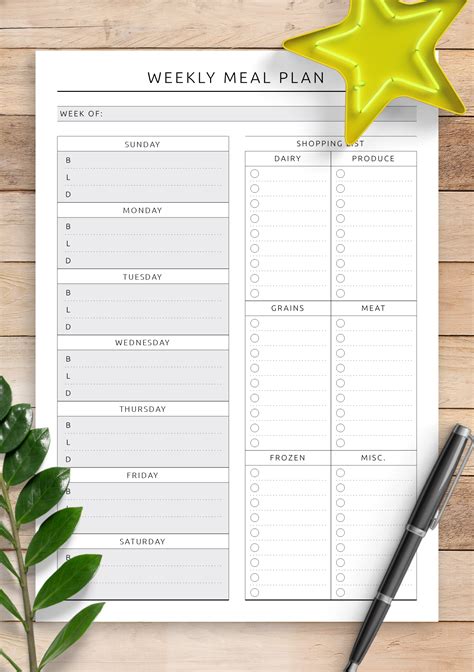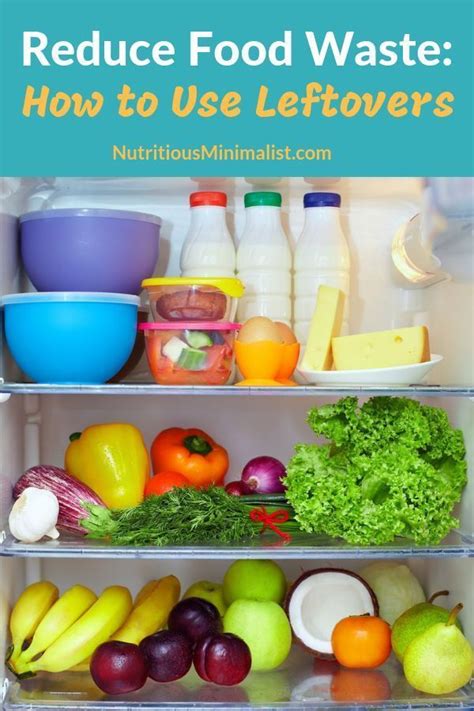Everyone aims to be a wise consumer, especially when it comes to the ever-rising costs of basic necessities. It is essential to find economical approaches to manage your food expenses without compromising on quality and nutrition. In today's article, we will explore ten tested techniques to help you cut down your spending on groceries and adopt a smarter approach to shopping.
Discovering practical ways to stretch your budget while purchasing essential food items is key to achieving financial stability. By implementing these strategies, you will be able to make the most out of every dollar spent without sacrificing your dietary needs or taste preferences. So, let's dive into the realm of intelligent grocery shopping and equip ourselves with ten proven methods to save substantially along the way.
As you embark on this journey of smart grocery shopping, it is important to understand the significance of planning and organization. By taking the time to strategize your purchases, you can avoid impulse buying, prevent food waste, and make informed decisions about what goes into your cart. Above all, being mindful of your choices will empower you to make the most of your financial resources while prioritizing your well-being.
Plan Your Meals and Create a Shopping List

Efficiently managing your meals and creating a well-thought-out shopping list are essential steps in saving money and making smart choices when shopping for groceries. By carefully planning your meals in advance and organizing a comprehensive shopping list, you can avoid impulse purchases, reduce food waste, and ensure that you only buy what you need.
To start, take some time to brainstorm and plan your meals for the upcoming week. Consider your dietary preferences, any ingredients you currently have on hand, and the nutritional value you want to prioritize. This process allows you to make conscious decisions about what items you need to purchase.
Once you have a clear idea of the meals you want to prepare, make a detailed shopping list that encompasses all the necessary ingredients. Categorize your list by departments such as fruits and vegetables, meats and proteins, grains and cereals, dairy and eggs, and pantry staples. Breaking down your list this way ensures you won't miss anything and helps you navigate the store more efficiently.
When creating your shopping list, be mindful of sales and promotions at your local grocery stores. Check advertisements or browse online to see if any items you need are available at discounted prices. Incorporating these specials into your list can help save you money without sacrificing quality or variety in your meals.
Consider utilizing apps or digital tools to assist in meal planning and list-making. Some apps provide personalized meal suggestions based on ingredients you already have, while others offer templates for creating categorized shopping lists. These resources can streamline your planning process and keep everything easily accessible.
Remember, sticking to your list when you're at the store is essential. Be disciplined and avoid impulse purchases that aren't part of your planned meals. By adhering to your predetermined list and eliminating unnecessary items, you'll be able to stay on budget and consistently make economical choices.
- Brainstorm and plan your meals for the week
- Create a comprehensive shopping list
- Categorize the list by departments
- Take advantage of sales and promotions
- Utilize apps or digital tools for assistance
- Stick to your list and avoid impulse purchases
By taking the time to plan your meals and create a shopping list, you can shop smarter, save money, and minimize wasteful spending. This organized approach allows you to make mindful choices about your purchases, ensuring that you have the necessary ingredients for your meals while staying within your budget.
Maximize Your Savings: Buy Large Quantities and Effectively Store Your Purchases
One strategy to optimize your shopping budget is to purchase your grocery items in bulk and ensure that they are stored correctly. Buying in bulk means purchasing a larger quantity of a particular item, which can often result in substantial cost savings. Additionally, proper storage methods can help maximize the shelf life of your purchases, reducing waste and further stretching your budget.
- Identify cost-effective options: Explore bulk purchase options available at different stores or online platforms to find the most economically advantageous choices for your preferred items.
- Make a shopping list: Plan your purchases in advance and create a detailed shopping list to ensure that you buy the right quantities without going overboard.
- Consider storage capacity: Before buying bulk quantities, assess the available space in your pantry, freezer, or fridge to ensure that you have sufficient room to store your purchases properly.
- Invest in storage containers: Purchase airtight containers, freezer bags, and other suitable storage options to maintain the freshness and quality of your bulk purchases. These containers also help keep your pantry organized.
- Label and rotate your stock: Clearly label your stored items with their purchase date, and practice a first-in, first-out approach to ensure that older items are used before newer ones. This helps prevent food spoilage and waste.
- Utilize portioning techniques: Divide bulk items into smaller portions to easily access what you need without exposing the rest of the product to air or moisture.
- Follow storage guidelines: Learn the optimal storage conditions for different food items, such as keeping produce in the refrigerator or storing dry goods in a cool, dark place. Adhering to these guidelines can extend the shelf life of your purchases.
- Monitor inventory levels: Regularly assess your stock and take note of items that are running low. This allows you to plan ahead and take advantage of sales or discounts on those items before completely depleting your supply.
- Share bulk purchases: Consider splitting the cost and quantity of bulk purchases with a friend or family member to further maximize savings while minimizing waste.
- Stay mindful of expiration dates: As you store your bulk purchases, remain mindful of expiration dates. Consume items nearing their expiration date first to avoid unnecessary waste.
By buying groceries in bulk and storing them properly, you can significantly reduce your expenses, minimize food waste, and ensure a steady supply of essential items. Incorporate these strategies into your shopping routine for smarter and more economical purchases.
Comparison Shopping: Finding the Best Deals at Various Stores

When it comes to shopping for groceries, one way to optimize your savings is by comparing prices and shopping at multiple stores. By exploring different options and making informed decisions, you can ensure that you are getting the best value for your money without compromising on the quality of the products you purchase.
There are several strategies you can employ to effectively compare prices and shop at multiple stores. Firstly, consider creating a shopping list and identifying the items you need. This will help you stay focused and avoid buying unnecessary items, whilst also allowing you to quickly compare prices for specific products.
- Take advantage of local grocery store flyers or online platforms that provide information on current sales and discounts. This will enable you to identify stores that offer the best deals on the items you need.
- Visit different stores in your area and compare prices for common household staples. Keep track of the prices you encounter and note down where you find the most affordable options.
- Consider the layout and organization of the stores you visit. Some stores may have a specific section dedicated to discounted products or offer exclusive deals on certain days of the week. By being aware of these factors, you can maximize your savings.
- Explore the possibility of purchasing certain products in bulk or opting for larger pack sizes. Oftentimes, buying in larger quantities can lead to significant cost savings in the long run.
Furthermore, it is important to be mindful of any additional costs associated with shopping at multiple stores. Take into account transportation expenses and the time you invest in visiting various locations. Calculating these factors alongside the potential savings can help you make a well-informed decision.
By comparing prices and shopping at multiple stores, you can stretch your budget further and make smarter choices when it comes to grocery shopping. By being proactive and utilizing these strategies, you can maximize your savings and bring home high-quality products at the best possible prices.
Take Advantage of Coupons and Discounts
One of the most effective ways to reduce your expenses when purchasing essential food items is by maximizing the benefits of coupons and discounts. By leveraging the various offers available, you can significantly lower the overall cost of your groceries without compromising on quality.
When it comes to coupons, always keep an eye out for them in newspapers, magazines, and online platforms specializing in deals and discounts. These valuable pieces of paper or digital codes can help you obtain discounts, special offers, or even free items. Researching and utilizing these coupons can lead to substantial savings on your grocery bill.
| Tip | Explanation |
|---|---|
| 1. Join Store Loyalty Programs | Many grocery stores offer loyalty programs that provide exclusive discounts for members. Take advantage of these programs to access special deals and maximize your savings. |
| 2. Check Store Websites and Apps | Some grocery stores have their own websites and mobile apps where they share coupons and discounts. Be sure to regularly visit these platforms to stay updated on the latest deals. |
| 3. Look for Manufacturer Coupons | In addition to store-specific coupons, keep an eye out for manufacturer coupons. These can be found on product packaging, in magazines, or on dedicated coupon websites. Using these coupons alongside store discounts can result in significant savings. |
| 4. Plan Your Shopping Around Sales | Pay attention to the weekly or monthly sales offered by grocery stores. Tailor your shopping list to include items that are on sale to maximize your coupon usage and save money. |
| 5. Combine Coupons with Store Policies | Familiarize yourself with the coupon policies of the stores you frequent. Some stores allow the stacking of multiple coupons or offer double coupon days. Take advantage of these policies to maximize your savings. |
By taking advantage of coupons and discounts, you can optimize your grocery shopping experience and make significant savings on your essential food items. Remember to stay organized, plan your purchases in advance, and keep an eye out for the best deals available to make the most out of your money.
Shop Seasonally and Locally

Get the most out of your grocery budget by adopting the smart shopping strategy of shopping seasonally and locally. By aligning your purchases with the seasons and supporting local farmers and producers, you can enjoy a variety of fresh, flavorful, and affordable ingredients while also contributing to your local community.
When you shop seasonally, you choose fruits, vegetables, and other produce that are naturally abundant during specific times of the year. By doing so, you can take advantage of the lower prices and higher quality of these items. Additionally, seasonal produce is often sourced locally, reducing transportation costs and supporting local farmers.
To embrace seasonal shopping, start by familiarizing yourself with the produce that is in season in your area. This can be easily done through online resources or by visiting your local farmers' market. Make a list of the seasonal ingredients you want to incorporate into your meals and plan your menus accordingly.
Shopping locally is another great way to save money on groceries. By supporting local farmers and producers, you can cut out the middleman and avoid the added costs associated with long-distance transportation. Local markets, farms, and co-ops are excellent places to find fresh, affordable, and often organic products. Not only will you be getting high-quality items, but you'll also be contributing to the sustainability of your local economy.
- Visit farmers' markets or farm stands in your area to find fresh, seasonal produce at competitive prices.
- Consider joining a community-supported agriculture (CSA) program that offers weekly or monthly deliveries of local, seasonal produce.
- Explore local grocery stores or co-ops that prioritize sourcing from nearby farms.
- Grow your own herbs and vegetables in a small garden or even on a windowsill to enjoy fresh produce without breaking the bank.
- Plan your meals around the seasonal ingredients you find, experimenting with new recipes and flavors.
By shopping seasonally and locally, you not only save money but also promote sustainability, support local farmers, and savor the vibrant flavors of each season. Embrace this smart shopping strategy and unlock a world of affordable and delicious possibilities!
Avoid Impulse Buys and Stick to Your Budget
When shopping for groceries, it is important to resist the urge to make impulsive purchases and instead stick to your planned budget. By avoiding impulsive buying habits, you can save a significant amount of money in the long run.
Here are some strategies to help you stay on track:
- Create a shopping list and stick to it: Before heading to the store, make a detailed list of the items you need. This will help you stay focused and avoid unnecessary purchases.
- Plan your meals in advance: By planning your meals for the week, you can ensure that you only buy the necessary ingredients and avoid buying extra items that may go to waste.
- Compare prices: Take the time to compare prices of different brands and stores. Look for discounts, deals, or coupons to help you get the best value for your money.
- Avoid shopping when hungry: Shopping on an empty stomach can lead to impulse purchases of unhealthy snacks or unnecessary items. Make sure to eat beforehand to avoid falling into this trap.
- Shop with a calculator: Keep a calculator handy or use the calculator on your smartphone to track your spending as you shop. This will help you stay within your budget and avoid overspending.
- Avoid shopping during peak hours: Shopping when the store is crowded can be overwhelming and increase the likelihood of impulse purchases. Try going during less busy hours to have a calmer shopping experience.
- Stick to the perimeter of the store: The outer aisles of the grocery store usually contain fresh produce, dairy, and other essentials. By primarily sticking to these areas, you can reduce the temptation of buying unnecessary processed foods.
- Shop with a friend: Having a shopping buddy can help keep you accountable and on track with your budget. They can provide moral support and help discourage impulsive purchases.
- Be mindful of marketing tactics: Retailers often use clever tactics to encourage impulse buying. Stay aware of these strategies, such as product placement at eye level or enticing promotions, and resist the urge to give in.
- Track your expenses: Keep a record of your grocery expenses to better understand your spending habits. This will allow you to identify areas where you can cut back and save even more money.
By following these tips and avoiding impulse buys, you can stick to your budget and save money on your grocery shopping while still getting the items you need.
Consider Generic Brands and Store Brands

When it comes to your grocery shopping, it's worth considering alternative options beyond the well-known and expensive name brands. Generic brands and store brands are often an excellent choice for budget-conscious individuals who seek to maximize their savings without compromising on quality.
Generic brands, also known as store brands or private labels, are products that are produced and sold under a specific retailer's name rather than a well-known brand name. These products typically offer similar or even identical quality compared to their branded counterparts. By choosing generic brands, you can often enjoy substantial savings while obtaining products that are just as good as their more expensive counterparts.
One of the main advantages of generic brands is their lower price. Since these products don't carry the brand recognition or expensive marketing campaigns of name brands, they are often priced significantly lower. This price difference can be quite substantial, especially when it comes to everyday essentials such as canned goods, grains, and dairy products.
Despite the lower price, generic brands maintain a high level of quality. They go through the same safety regulations and certification processes as branded products, ensuring that they meet the necessary standards. In fact, many generic products are manufactured by the same companies that produce the popular name brands, using identical ingredients and production methods.
- Generic brands often offer a wide range of options, making it easier to find products that cater to your specific dietary needs or preferences.
- By choosing store brands, you can often support local businesses and contribute to the growth of your community.
- Many retailers offer satisfaction guarantees on their generic brands, allowing you to try them risk-free and return them if you're not completely satisfied.
- Store brands often provide packaging that is more environmentally friendly, promoting sustainability and reducing waste.
In conclusion, when looking to save money on groceries, it's essential to consider generic brands and store brands as a viable and cost-effective alternative to name brands. Not only do these products offer significant savings, but they also provide comparable quality and a wide variety of options. By embracing generic brands, you can make your shopping experience more budget-friendly without compromising on the items you need.
Unlock the Power of Cashback Apps and Loyalty Programs
When it comes to optimizing your budget and making the most of your grocery shopping, cashback apps and loyalty programs can be a game-changer. These innovative tools offer a multitude of benefits that go beyond mere savings, helping you stretch your dollar further without compromising on quality or variety. By leveraging these smart shopping techniques, you can enjoy exclusive rewards, earn cashback on your purchases, and gain access to special promotions and discounts.
With the advent of technology, cashback apps have become increasingly popular among savvy shoppers. These apps allow you to earn money back on your grocery purchases by simply scanning your receipts or linking your store loyalty cards. They provide a hassle-free way to save money without cutting coupons or sifting through numerous flyers. Some apps even offer personalized suggestions and tailored recommendations based on your shopping habits, ensuring you always make informed choices.
In addition to cashback apps, loyalty programs offered by grocery stores can significantly enhance your shopping experience. These programs typically involve signing up for a store's membership card, which grants you access to various perks and discounts. By using your membership card at the checkout, you can accumulate points or earn "store credits" that can be redeemed for future purchases. Furthermore, loyalty programs often come with exclusive benefits, such as early access to sales, freebies, or personalized offers tailored to your preferences.
A smart shopper knows that a thorough understanding of the different cashback apps and loyalty programs available is key to maximizing savings. Take the time to research and compare the features, benefits, and user reviews of various apps and programs to find the ones that align with your shopping goals and preferences. It's also worth noting that some apps and programs partner with specific grocery stores, while others offer more flexibility and can be used at multiple retailers. By choosing the right ones, you can unlock a plethora of opportunities to save money and make your grocery shopping experience even more rewarding.
| Benefits of Cashback Apps and Loyalty Programs: |
|---|
| - Earn cashback on your grocery purchases |
| - Access exclusive rewards, promotions, and discounts |
| - Enjoy personalized suggestions and tailored recommendations |
| - Accumulate points or store credits for future purchases |
| - Gain early access to sales and receive personalized offers |
| - Compare features, benefits, and user reviews to choose the right apps and programs |
Avoid Food Waste and Utilize Leftovers

In this section, we will explore effective strategies to prevent food waste and make the most of your leftover ingredients. By implementing these techniques, you can ensure that no food goes to waste and find creative ways to utilize your leftovers, ultimately saving both money and resources.
Firstly, it is essential to plan your meals thoughtfully to minimize excess food and prevent spoilage. Create a shopping list based on the meals you intend to make, taking into account the ingredients you already have at home. This approach will help you avoid purchasing unnecessary items that may go unused and eventually be wasted.
Furthermore, proper storage plays a crucial role in maximizing the shelf life of your groceries and leftovers. Investing in airtight containers and organizing your fridge and pantry can help reduce spoilage and extend the usability of your perishable items. Additionally, label your leftovers with the date to keep track of their freshness.
Another way to avoid waste is by repurposing leftovers into new dishes. Get creative and transform those odds and ends into delicious meals. For example, vegetable scraps can be turned into a flavorful homemade broth, while stale bread can be used to make breadcrumbs or savory bread pudding.
| Leftover Ingredient | Repurposing Idea |
|---|---|
| Roasted Chicken | Shred and use in sandwiches, salads, or wraps. |
| Rice | Transform into fried rice or add to soups and casseroles. |
| Overripe Bananas | Bake banana bread or freeze for later use in smoothies. |
Learning to properly freeze leftovers is another valuable skill. Certain ingredients, such as cooked meats or soups, can be safely frozen for future meals. Portion them into individual servings and label them correctly to avoid confusion. This practice not only prevents waste but also provides a convenient option for quick and easy meals on busy days.
Finally, being mindful of portion sizes can help avoid unnecessary waste. Consider smaller servings or using measuring tools to prevent overcooking and subsequent leftover quantities. By adjusting portion sizes based on your needs, you can reduce the chances of excess food that may go unused.
By employing these strategies to avoid waste and utilizing leftovers creatively, you can make significant progress in saving money and reducing food waste. Not only will you contribute to a more sustainable lifestyle, but you will also discover newfound culinary delights and reduce your ecological footprint.
Grow Your Own Produce and Preserve Foods
One way to significantly cut down on your expenses and ensure the quality of your food is by taking control of the production and preservation process. By growing your own fruits, vegetables, and herbs, you can have a fresh and abundant supply of produce without having to rely solely on grocery stores and their prices.
Achieving self-sufficiency in the supply of certain foods can not only help you save money, but it can also empower you to make healthier choices and connect with the natural world around you. By starting a small garden in your backyard or even in pots on your balcony, you can grow your own greens, root vegetables, and herbs, reducing the need to purchase them from stores.
Additionally, preserving food through canning, freezing, or drying can prolong its shelf life, allowing you to enjoy seasonal produce all year round. Preserving also helps prevent food waste, as you can preserve surplus or overripe fruits and vegetables instead of throwing them away.
| Potential Benefits of Growing Your Own Produce and Preserving Foods: |
|---|
| 1. Cost savings from reducing grocery store purchases |
| 2. Control over the quality of the food you consume |
| 3. Access to a wider variety of organic and heirloom produce |
| 4. Increased connection with nature and a sense of self-sustainability |
| 5. Opportunity to teach children about gardening and food preservation |
Whether you have a large backyard or limited space, there are numerous resources available online and in books that can guide you through the process of starting your own garden. Learning about different preservation methods and techniques will also help you make the most of your homegrown produce.
By incorporating the practice of growing your own produce and preserving foods into your lifestyle, you can not only save money and enjoy fresh, nutritious ingredients but also take a step towards a more sustainable and self-reliant way of living.
FAQ
How can I save money on groceries?
There are several proven tips for smart shopping that can help you save money on groceries. Some of them include planning your meals, making a shopping list, buying in bulk, comparing prices, using coupons, and taking advantage of sales and discounts.
Is it true that meal planning can save money on groceries?
Yes, meal planning is a great way to save money on groceries. By planning your meals in advance, you can buy only the necessary ingredients and avoid impulse purchases. Additionally, having a meal plan helps to reduce food waste as you will be utilizing all the ingredients you buy.
How does buying in bulk help to save money on groceries?
Buying in bulk can save you money in the long run. When you buy items in larger quantities, you often get a lower price per unit. It is especially beneficial for non-perishable items or items that you use frequently. Just make sure that you have enough storage space and that you will actually use all the items before they expire.
Why should I compare prices while grocery shopping?
Comparing prices is essential to ensure that you are getting the best possible deals. Different stores may offer different prices for the same items, so taking the time to compare can help you save money. You can also check for any ongoing promotions or discounts in different stores to maximize your savings.
Are coupons really effective in saving money on groceries?
Yes, coupons can be highly effective in saving money on groceries. They can help you get discounts or even free items. You can find coupons in newspapers, magazines, online coupon websites, or even directly from the manufacturers. Just make sure to use them for the items you actually need and not get carried away by unnecessary purchases.
How can I save money on groceries?
There are 10 proven tips for smart shopping that can help you save money on groceries. Some of these tips include making a shopping list, buying in bulk, using coupons and discounts, comparing prices, shopping at cheaper stores, and planning your meals in advance. By following these strategies, you can reduce your grocery expenses significantly.
What are some tips for smart grocery shopping?
Here are 10 proven tips for smart shopping that can help you save money on groceries. Firstly, make a shopping list before going to the store to avoid impulsive purchases. Secondly, buy items in bulk, especially non-perishable goods. Thirdly, take advantage of coupons and discounts to get better deals. Fourthly, compare prices of different brands and products to find the best value for money. Additionally, consider shopping at cheaper stores or using online grocery delivery services to save on transportation costs. Lastly, plan your meals in advance and buy only what you need to avoid wastage.



